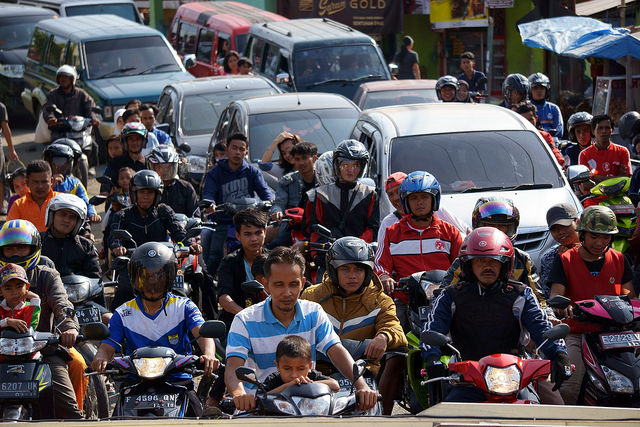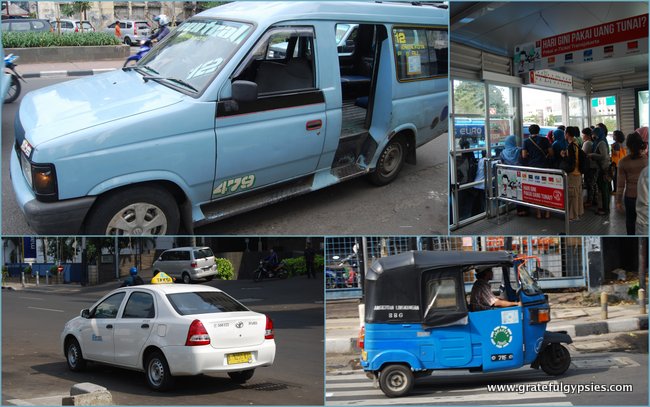Mudik (Homecoming) Posted by sasha on Jun 19, 2017 in Uncategorized
It’s that busy time of year again, as millions of Indonesians are leaving the big cities to return to their hometowns and villages to celebrate Lebaran – the end of the holy month of Ramadan. This tradition is known as Mudik or Pulang Kampung in Indonesian. Let’s learn more about Mudik and why it’s such an important part of Indonesian culture.
What Does “Mudik” Mean?
The term mudik is a combination of menuju (towards) and udik (upstream). Thus, it means “to travel upstream.” For those braving the crowds and traffic jams to get home, it can certainly feel as if they’re traveling upstream. This begs the question – why are there so many people on the road at this time of year?
From Village to City and Back
All across Indonesia, there has been a mass migration of people from rural to urban areas. Job opportunities have led millions to look for work in the big cities, especially on Java. For these migrant workers, it’s hard to find the time and funds to make it home. Almost everyone tries to do so for Lebaran, as it’s a very important time to be with family. Jakarta basically becomes a ghost town around this time, as there are so many migrant workers living there and a vast majority of them head home for the holiday.
Asking for Forgiveness
At the end of the holy month of Ramadan, it’s customary to ask for forgiveness for any wrongdoings from your family and friends. This is expressed in the phrase, “Mohon Maaf Lahir Batin,” which can be translated as “please forgive me for anything wrong I have done in the past.” To miss out on this is very disappointing and people are willing to endure the hardships and inconveniences of traveling just to reunite with their loved ones.
Mass Exodus
Millions upon millions of people are traveling to their hometowns in time for Lebaran, most of them leaving the big cities of Java. Planes, trains, and buses have been sold out for weeks. The highways are choked in seemingly endless traffic. In order to ease the strain on the country’s transportation infrastructure, the government encourages people to take public transportation rather than drive or ride a motorbike. The mudik gratis (free mudik) program offers to ship motorbikes via railways, trucks, or ships while the owner travels on a bus or train to their hometown.
Of course, with all these millions of people traveling, there’s bound to be traffic – lots of it. There’s even a new app this year to help people navigate their journey home. Ayo Mudik allows travelers to get real-time traffic information, as well as find things like rest areas and mosques. It’s possible to use the app to find different routes to avoid the worst traffic, which will hopefully make a difference for many this year.
Video
Learn more about Mudik and practice your Indonesian listening skills by watching this YouTube video. It’s called “Kenapa Mudik Jadi Tradisi di Indonesia?” (“Why Did Mundik Become a Tradition in Indonesia?”):

Build vocabulary, practice pronunciation, and more with Transparent Language Online. Available anytime, anywhere, on any device.





